Related Research Articles

Forever Changes is the third studio album by the American rock band Love, released by Elektra Records in November 1967. The album saw the group embrace a subtler folk-oriented sound, acoustic guitar, and orchestration, while primary songwriter Arthur Lee explored darker themes alluding to mortality and his creeping disillusionment with the 1960s counterculture. It was the final album recorded by the original band lineup; after its completion, Bryan MacLean left the group acrimoniously and the other members were dismissed by leader Lee.
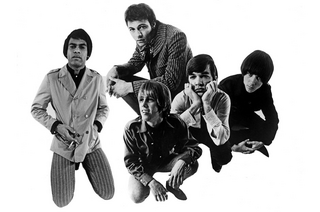
Love is an American rock band formed in Los Angeles in 1965. Led by frontman and primary songwriter Arthur Lee, they were one of the first racially diverse American rock bands. Their sound incorporated an eclectic range of styles including garage, folk-rock, and psychedelia. While finding only modest success on the music charts, peaking in 1966 with their US Top 40 hit "7 and 7 Is", Love would come to be praised by critics as their third album, Forever Changes (1967), became generally regarded as one of the best albums of the 1960s.
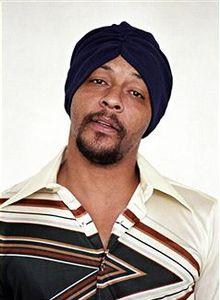
Arthur Taylor Lee was an American musician, singer and songwriter who rose to fame as the leader of the Los Angeles rock band Love. Love's 1967 album Forever Changes was inducted into the Grammy Hall of Fame, and it is part of the National Recording Registry.
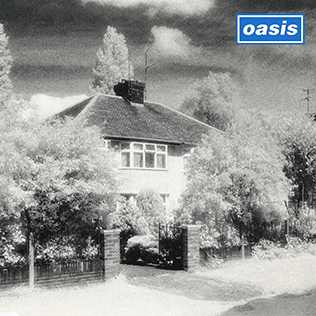
"Live Forever" is a song by English rock band Oasis. Written by Noel Gallagher, the song was released as the third single from their debut album Definitely Maybe (1994) on 8 August 1994, just prior to that album's release. Gallagher wrote the song in 1991, before he joined Oasis.

"Say It Ain't So" is a song by American rock band Weezer. It was released as the third and final single from the band's self-titled 1994 debut album on May 15, 1995. Written by frontman Rivers Cuomo, the song came to be after he had all the music finished and one line, "Say it ain't so". Cuomo made a connection to an incident in high school where he came home and saw a bottle of beer in the fridge. He believed his mother and father's marriage ended because his father was an alcoholic, and this made him fear the marriage between his mother and step-father would end this way as well.
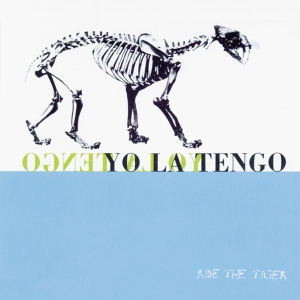
Ride the Tiger is the debut studio album by American indie rock band Yo La Tengo. It was released in 1986 by record label Coyote.

Da Capo is the second studio album by American rock band Love, released in November 1966 by Elektra Records. The album was recorded during September and October 1966 at RCA Studios in Hollywood, California, with the exception of lead single "7 and 7 Is" recorded previously in June. "7 and 7 Is" became the band's biggest commercial single.

Four Sail is the fourth studio album by the American rock band Love, released in 1969 by Elektra Records.
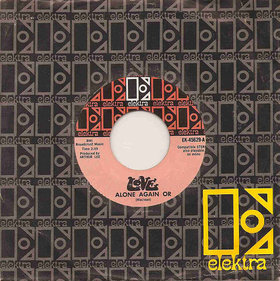
"Alone Again Or" is a song originally recorded in 1967 by the rock group Love and written by band member Bryan MacLean. It appears on the album Forever Changes, and was released as a single in the USA, UK, Australia, France and the Netherlands.
"Andmoreagain" is a song written by Arthur Lee and performed by Love. It was first released on their 1967 album Forever Changes. The song was always a part of Lee's concert repertoire, even after disbanding Love.
"The Red Telephone" is a song written by Arthur Lee and first released by Love on their 1967 album Forever Changes.

The Forever Changes Concert (2003) is the last album released by Love with Arthur Lee. There was a two-CD re-release in 2007 under the name of The Forever Changes Concert & More, which features extra songs, a live video of "Alone Again Or", band images and a screensaver.

"Orange Skies" is a song written by Bryan MacLean and originally recorded in 1966 by the band Love for their second album Da Capo. It was first released the same month as the B-side to the band's single "Stephanie Knows Who". The original recording features band leader Arthur Lee on lead vocals instead of MacLean.

"Ever Fallen in Love (With Someone You Shouldn't've)" is a 1978 song written by Pete Shelley and performed by his group Buzzcocks. It was a number 12 hit on the UK Singles Chart and was included on the album Love Bites.

"Bluebird" is a song recorded by the American rock group Buffalo Springfield. It was written and produced by Stephen Stills, with co-production by Ahmet Ertegun. In June 1967, Atco Records released it as a single to follow-up their hit "For What It's Worth" (1966).

"She Comes in Colors" is a song written by Arthur Lee and released by the band Love as a single in 1966 and on their 1966 album Da Capo. It was also included on a number of Love compilation albums, including Love Revisited and Best of Love and on the multi-artist compilation album Forever Changing: The Golden Age of Elektra 1963–1973.

"¡Que Vida!" is a song written by Arthur Lee and first released in 1967 by the band Love. It was released both on Love's album Da Capo and as a single, backed with "Hey Joe". It has also been included on several Love compilation albums.

"Stephanie Knows Who" is a song written by Arthur Lee and first released by Love on their 1966 album Da Capo. It has also been released on several Love compilation albums. It was to have been released as a single, backed with "Orange Skies", but the single was withdrawn, with "She Comes in Colors" replacing it under the same catalog number. The song was also covered by The Move.

"Harvest Moon" is a song written by Neil Young, and was released as the first single from his 1992 album Harvest Moon. It reached No. 36 on the UK Singles Chart.

Black Beauty is an album by the psychedelic rock band Love, released on February 13, 2012. Issued on High Moon Records, it compiles material from a canceled studio album, which frontman Arthur Lee—backed by a new group with an all-black line-up—planned to have released on the Buffalo Records label. Recorded after a series of unsuccessful albums, both with Love and his 1972 solo effort Vindicator, Black Beauty was intended to serve as Lee's comeback album. Among other Love releases, it is notable for its reinvention of the band as a funk group, while preserving Lee's lyrical complexity.
References
- 1 2 Greenwald, Matthew. "A House Is Not a Motel Song Review". AllMusic .
- ↑ Barnes, Ken (August 6, 2006). "Arthur Lee, the legend rock almost forgot". USA Today . Retrieved July 20, 2018.
- 1 2 Barker, David (2006). 33 1/3 Greatest Hits, Volume 1. Bloomsbury Publishing. ISBN 1441112340.
- ↑ Rooksby, Rikky (2001). Inside Classic Rock Tracks: Songwriting and Recording Secrets of 100 Great Songs from 1960 to the Present Day. Hal Leonard Corporation. p. 44. ISBN 0879306548.
- ↑ Fowle, Kyle (February 10, 2015). "Forever Changes is a stunning indictment of The Summer Of Love". The A.V. Club . Retrieved July 20, 2018.
- ↑ "Counter-Culture: The Top 100 Songs of the '60s". Treble. August 9, 2016. Retrieved July 20, 2018.
- ↑ "Die 700 besten Songs aller Zeiten: Plätze 450 bis 401". Musikexpress (in German). March 3, 2014. Retrieved July 20, 2018.
- ↑ "Feed Your Head: 50 Essential Songs from the Summer of Love". Uncut . April 20, 2017.
- ↑ "Las 101 mejores canciones de rock de los años 50 y 60". Hipersonica (in Spanish). June 17, 2014. Retrieved July 20, 2018.[ permanent dead link ]